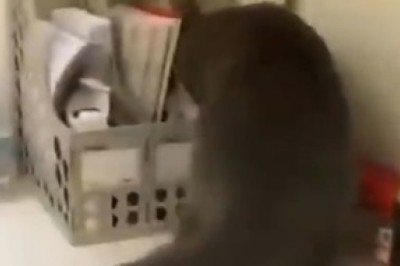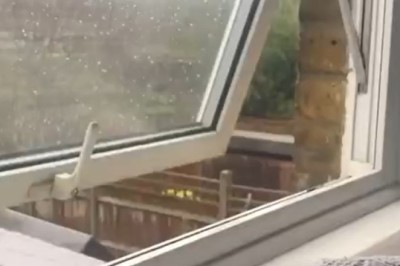Coughing in Cats: Causes, Treatments, and Prevention
In cats, coughing can be a concerning symptom that may indicate underlying respiratory issues. Understanding the common causes of coughing in cats, how to treat it, and how to prevent it is crucial for maintaining your feline friend's health. This article aims to provide valuable information on coughing in cats to help you identify and address this issue effectively.
What is Coughing in Cats?
Coughing is a defensive reflex in cats that helps expel irritants, congestion, or foreign bodies from their respiratory system. Although relatively uncommon, persistent coughing in cats should not be ignored. If your cat continues to cough for several days without improvement, it may be a sign of an underlying respiratory condition that requires immediate attention.
Differentiating between a cat's cough and other actions like vomiting is essential. When a cat coughs, it contracts its chest abruptly, forcefully expelling air and creating a distinct sound.
Several characteristics of coughing in cats should be noted, including the time of occurrence (night, morning, during meals), duration (sudden or persistent), intensity (loud or discreet), associated respiratory issues (such as difficulty breathing and nasal secretions), and potential exacerbating symptoms (digestive issues and weight loss).
Common Causes of Coughing in Cats
Several factors can lead to coughing in cats. Here are some of the most common causes:
-
Infectious Pneumonias: Cats can develop infectious pneumonias caused by viruses, bacteria, parasites, or fungi. Conditions like cat flu (coryza), often caused by herpesvirus and/or calicivirus, can result in respiratory symptoms, including coughing, along with nasal and ocular discharge. Cat flu is highly contagious and can be fatal, especially in communal living environments like shelters or boarding facilities.
-
Feline Asthma: Feline asthma is an immune-related condition that affects the bronchi. It leads to bronchospasms, structural changes in the bronchi, increased mucus secretion, and reduced mucus expulsion, resulting in chronic bronchial inflammation. Feline asthma is often of allergic origin, and an asthma attack can pose a life-threatening situation for cats, requiring immediate veterinary attention.
-
Chronic Feline Bronchitis: Repeated respiratory tract irritations can lead to chronic feline bronchitis, causing inflammatory lesions that deform the bronchi. Similar to feline asthma, mucus accumulates in the bronchi, leading to chronic coughing and potential respiratory distress episodes.
-
Mechanical Causes: Mechanical causes such as the presence of foreign bodies (e.g., grass seeds, lodged objects) or irritants (dust, cigarette smoke) can induce coughing in cats. Seasonal allergens like pollen can also trigger persistent coughing, often accompanied by other allergy-specific signs such as wheezing.
-
Mechanical Obstruction: Masses such as tumors or fluid accumulation in the thoracic region between the lungs can mechanically cause coughing in cats.
How to Relieve a Coughing Cat?
The treatment for a cat's cough depends on its cause. Remember, it is essential to rapidly alleviate the cough to prevent potential chronic damage. Consultation with a veterinarian for a thorough clinical examination is crucial, and additional diagnostic tests such as auscultation, percussion, radiography, and blood analysis may be necessary.
Once a diagnosis is established, the veterinarian will prescribe specific treatment or provide tailored advice based on the underlying cause of the cough. Treatment options may include anti-inflammatories for asthma or chronic bronchitis, bronchodilators for severe respiratory distress with bronchospasms, and specific medications (antibiotics, antiparasitics, antifungals) for infectious pneumonias. In some cases, surgical intervention may be necessary for mechanical causes of coughing.
Signs of a Veterinary Emergency
Respiratory conditions can worsen rapidly, and some symptoms may indicate a veterinary emergency. If your cat appears lethargic, stops eating or drinking, or experiences difficulty breathing along with coughing (open-mouth breathing, abnormal thoracic movements), it is crucial to seek immediate veterinary care.
Preventing Coughing in Cats
To minimize the risk of coughing episodes in your cat, consider the following prevention measures:
- Ensure regular parasite control and deworming treatments for your cat.
- Keep your cat's vaccinations up to date, especially if it interacts with other cats or stays in a boarding facility.
- Avoid using airborne allergens in your home, as some cats are highly sensitive to them.
By following these preventive measures, you can help safeguard your cat's respiratory health and reduce the likelihood of coughing episodes.
Remember, if your cat is coughing persistently, it is best to consult with a veterinarian as they can provide appropriate diagnosis and treatment to ensure your feline companion's well-being.





















Comments
0 comment